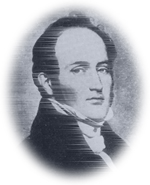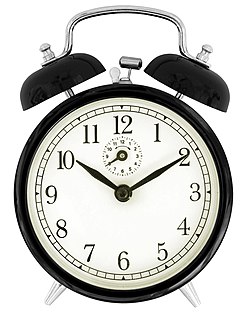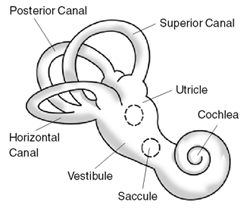
Hearing loss, also known as hearing impairment, is a partial or total inability to hear. A deaf person has little to no hearing. Hearing loss may occur in one or both ears. In children, hearing problems can affect the ability to learn spoken language and in adults it can create difficulties with social interaction and at work. In some people, particularly older people, hearing loss can result in loneliness. Hearing loss can be temporary or permanent.
This is a glossary of medical terms related to communications disorders which are conditions that could have the potential to negatively impact the level at which an individual can hear, understand, and respond to others.
A balance disorder is a disturbance that causes an individual to feel unsteady, for example when standing or walking. It may be accompanied by feelings of giddiness, or wooziness, or having a sensation of movement, spinning, or floating. Balance is the result of several body systems working together: the visual system (eyes), vestibular system (ears) and proprioception. Degeneration or loss of function in any of these systems can lead to balance deficits.
Ototoxicity is the property of being toxic to the ear (oto-), specifically the cochlea or auditory nerve and sometimes the vestibular system, for example, as a side effect of a drug. The effects of ototoxicity can be reversible and temporary, or irreversible and permanent. It has been recognized since the 19th century. There are many well-known ototoxic drugs used in clinical situations, and they are prescribed, despite the risk of hearing disorders, to very serious health conditions. Ototoxic drugs include antibiotics such as gentamicin, streptomycin, tobramycin, loop diuretics such as furosemide and platinum-based chemotherapy agents such as cisplatin, carboplatin, and vincristine. A number of nonsteroidal anti-inflammatory drugs (NSAIDS) have also been shown to be ototoxic. This can result in sensorineural hearing loss, dysequilibrium, or both. Some environmental and occupational chemicals have also been shown to affect the auditory system and interact with noise.
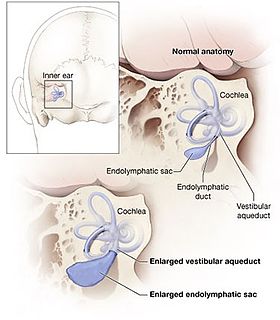
Pendred syndrome is a genetic disorder leading to congenital bilateral sensorineural hearing loss and goitre with euthyroid or mild hypothyroidism. There is no specific treatment, other than supportive measures for the hearing loss and thyroid hormone supplementation in case of hypothyroidism. It is named after Dr Vaughan Pendred (1869–1946), the British doctor who first described the condition in an Irish family living in Durham in 1896. It accounts for 7.5% to 15% of all cases of congenital deafness.
Otology is a branch of medicine which studies normal and pathological anatomy and physiology of the ear as well as their diseases, diagnosis and treatment. Otologic surgery generally refers to surgery of the middle ear and mastoid related to chronic otitis media, such as tympanoplasty, or ear drum surgery, ossiculoplasty, or surgery of the hearing bones, and mastoidectomy. Otology also includes surgical treatment of conductive hearing loss, such as stapedectomy surgery for otosclerosis.
A drop attack is a sudden fall without loss of consciousness. Drop attacks stem from diverse mechanisms, including orthopedic causes, hemodynamic causes, and neurologic causes, among other reasons. Those afflicted typically experience abrupt leg weakness, sometimes after sudden movement of the head. The weakness may persist for hours.
A neurectomy is a type of nerve block involving the severing or removal of a nerve. This surgery is performed in rare cases of severe chronic pain where no other treatments have been successful, and for other conditions such as involuntary twitching and excessive blushing or sweating.
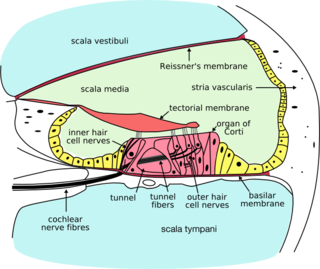
A labyrinthine fistula is an abnormal opening in the inner ear. This can result in leakage of the perilymph into the middle ear. This includes specifically a perilymph fistula (PLF), an abnormal connection between the fluid of the inner ear and the air-filled middle ear. This is caused by a rupture of the round window or oval window ligaments separating the inner and middle ear.
Endolymphatic hydrops is a disorder of the inner ear. It consists of an excessive build-up of the endolymph fluid, which fills the hearing and balance structures of the inner ear. Endolymph fluid, which is partly regulated by the endolymph sac, flows through the inner ear and is critical to the function of all sensory cells in the inner ear. In addition to water, endolymph fluid contains salts such as sodium, potassium, chloride and other electrolytes. If the inner ear is damaged by disease or injury, the volume and composition of the endolymph fluid can change, causing the symptoms of endolymphatic hydrops.
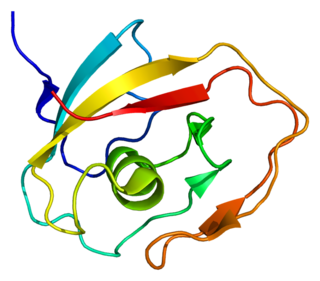
Cochlin is a protein that in humans is encoded by the COCH gene.
Superior semicircular canal dehiscence syndrome is a set of hearing and balance symptoms, related to a rare medical condition of the inner ear, known as superior canal dehiscence. The symptoms are caused by a thinning or complete absence of the part of the temporal bone overlying the superior semicircular canal of the vestibular system. There is evidence that this rare defect, or susceptibility, is congenital. There are also numerous cases of symptoms arising after physical trauma to the head. It was first described in 1998 by Lloyd B. Minor of Johns Hopkins University in Baltimore.
ICD-10 is an international statistical classification used in health care and related industries.

Autoimmune inner ear disease was first defined by Dr. Brian McCabe in a landmark paper describing an autoimmune loss of hearing. The disease results in progressive sensorineural hearing loss (SNHL) that acts bilaterally and asymmetrically, and sometimes affects an individual's vestibular system. AIED is used to describe any disorder in which the inner ear is damaged as a result of an autoimmune response. Some examples of autoimmune disorders that have presented with AIED are Cogan's syndrome, relapsing polychondritis, systemic lupus erythematosus, granulomatosis with polyangiitis, polyarteritis nodosa, Sjogren's syndrome, and Lyme disease.
Vestibular migraine (VM) is vertigo associated with a migraine, either as a symptom of migraine or as a related but neurological disorder; when referred to as a disease unto itself.
Neurotology or neuro-otology is a branch of clinical medicine which studies and treats neurological disorders of the ear. It is a subspecialty of otolaryngology-head and neck surgery, and is closely related to otology, and also draws on the fields of neurology and neurosurgery. Otology generally refers to the treatment of middle ear disease and resultant conductive hearing loss, whereas neurotology refers to treatment of inner ear conditions, or hearing and balance disorders. These specialists also work with audiologists and related sensory specialists.

Lloyd Brooks Minor M.D. is an American surgeon, researcher, educator, and academic administrator. The Carl and Elizabeth Naumann Dean of Stanford University School of Medicine, his term began in December 2012. Previously, he was the provost of Johns Hopkins University. An expert on the inner ear, he is known for identifying the superior canal dehiscence syndrome, a disorder where a hole in the skull bone upsets the inner ear balance canal. For refining a treatment for Ménière’s disease using gentamicin, Minor received the Prosper Ménière Society’s gold medal in 2010. A fellow of the American College of Surgeons and the American Academy of Otolaryngology – Head and Neck Surgery, he is also a member of the National Academy of Medicine.
Hearing Health Foundation (HHF) is a 501c3 nonprofit organization whose mission is to prevent and cure hearing loss and tinnitus through groundbreaking research, and promote hearing health. In 2011, the Deafness Research Foundation changed its name to Hearing Health Foundation.
